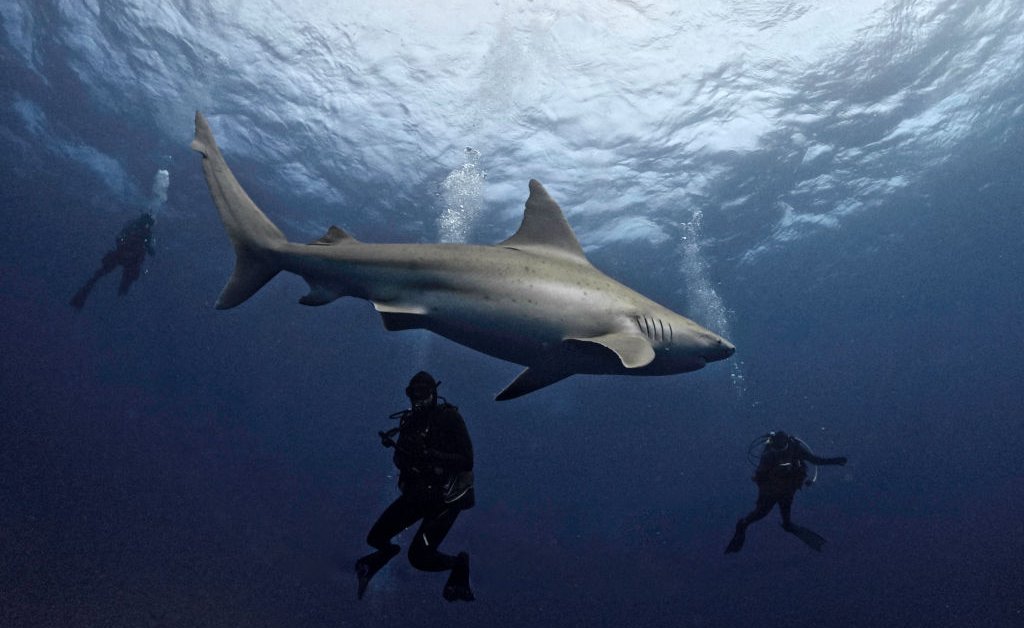How Jaws Affected Public Perception Of Sharks And Marine Life

Welcome to your ultimate source for breaking news, trending updates, and in-depth stories from around the world. Whether it's politics, technology, entertainment, sports, or lifestyle, we bring you real-time updates that keep you informed and ahead of the curve.
Our team works tirelessly to ensure you never miss a moment. From the latest developments in global events to the most talked-about topics on social media, our news platform is designed to deliver accurate and timely information, all in one place.
Stay in the know and join thousands of readers who trust us for reliable, up-to-date content. Explore our expertly curated articles and dive deeper into the stories that matter to you. Visit Best Website now and be part of the conversation. Don't miss out on the headlines that shape our world!
Table of Contents
How Jaws Changed Our Perception of Sharks and the Ocean Forever
The summer of 1975 saw the release of Steven Spielberg's Jaws, a film that would forever alter the public's perception of sharks and, by extension, the ocean itself. While a cinematic masterpiece, the film's legacy extends beyond its box office success, leaving an enduring impact on our understanding and fear of marine life. This lasting effect continues to challenge conservation efforts and shape public policy surrounding sharks and ocean ecosystems.
The Rise of 'Shark Phobia': A Cultural Phenomenon
Before Jaws, sharks were largely unknown to the general public. While some awareness existed through documentaries and scientific literature, the film catapulted them into the mainstream consciousness, but not in a positive light. Jaws portrayed great white sharks as relentless, man-eating killing machines, fueling a widespread and largely unfounded fear known as galeophobia. This fear, instilled through the film's suspenseful narrative and terrifying imagery, led to a dramatic shift in public opinion.
Suddenly, sharks, once mysterious creatures of the deep, became symbols of terror. This perception wasn't just limited to great whites; it generalized to many shark species, unfairly branding them all as dangerous predators. The film's impact transcended age groups, impacting generations who now associate sharks primarily with fear and aggression.
The Impact on Shark Populations: A Devastating Consequence
The consequences of this newly cultivated fear were devastating for shark populations. The film's release triggered a global surge in shark hunts, with many people actively seeking to eliminate these creatures from their waters. This widespread culling significantly impacted shark populations worldwide, pushing several species closer to extinction. The indiscriminate nature of the hunts, often targeting even non-threatening species, exacerbated the problem.
Beyond Sharks: The Broader Impact on Marine Conservation
Jaws' influence extends beyond sharks, affecting the overall public perception of the marine environment. The film contributed to a general feeling of fear and uncertainty surrounding the ocean, fostering a sense of distance and disconnect from marine ecosystems. This perception hindered marine conservation efforts, making it harder to garner public support for initiatives aimed at protecting ocean life and habitats.
Reframing the Narrative: Education and Conservation Efforts
In recent years, significant efforts have been made to counter the negative image of sharks perpetuated by Jaws. Many documentaries and educational programs focus on highlighting the crucial ecological role sharks play in maintaining healthy ocean ecosystems. Organizations like the Shark Trust and the Ocean Conservancy are working tirelessly to educate the public, dispel myths, and promote shark conservation. These efforts aim to replace the fear-based narrative with a more balanced and accurate understanding of these magnificent creatures.
Moving Forward: A Call for Responsible Storytelling and Conservation
While Jaws undeniably holds a place in cinematic history, its lasting impact on shark conservation serves as a cautionary tale. The film highlights the power of media to shape public perception, emphasizing the importance of responsible storytelling and the need for accurate, science-based information to inform conservation efforts. The future of sharks, and indeed the health of our oceans, depends on shifting public perception from fear to understanding and respect.
What are your thoughts on the legacy of Jaws? Share your opinion in the comments below!

Thank you for visiting our website, your trusted source for the latest updates and in-depth coverage on How Jaws Affected Public Perception Of Sharks And Marine Life. We're committed to keeping you informed with timely and accurate information to meet your curiosity and needs.
If you have any questions, suggestions, or feedback, we'd love to hear from you. Your insights are valuable to us and help us improve to serve you better. Feel free to reach out through our contact page.
Don't forget to bookmark our website and check back regularly for the latest headlines and trending topics. See you next time, and thank you for being part of our growing community!
Featured Posts
-
 Vance Boelter Update On Arrest In Minnesota Lawmaker Shooting Case
Jun 17, 2025
Vance Boelter Update On Arrest In Minnesota Lawmaker Shooting Case
Jun 17, 2025 -
 Injury Update Lance Mc Cullers Jr Joins Astros Injured List
Jun 17, 2025
Injury Update Lance Mc Cullers Jr Joins Astros Injured List
Jun 17, 2025 -
 Taylor Jenkins To Interview First For Knicks Head Coaching Job Jason Kidd Remains A Factor
Jun 17, 2025
Taylor Jenkins To Interview First For Knicks Head Coaching Job Jason Kidd Remains A Factor
Jun 17, 2025 -
 Previsao Escalacao Do Benfica Para O Jogo Inaugural Do Mundial De Clubes
Jun 17, 2025
Previsao Escalacao Do Benfica Para O Jogo Inaugural Do Mundial De Clubes
Jun 17, 2025 -
 Israeli Iranian Conflict Trumps Response And Potential Implications
Jun 17, 2025
Israeli Iranian Conflict Trumps Response And Potential Implications
Jun 17, 2025
